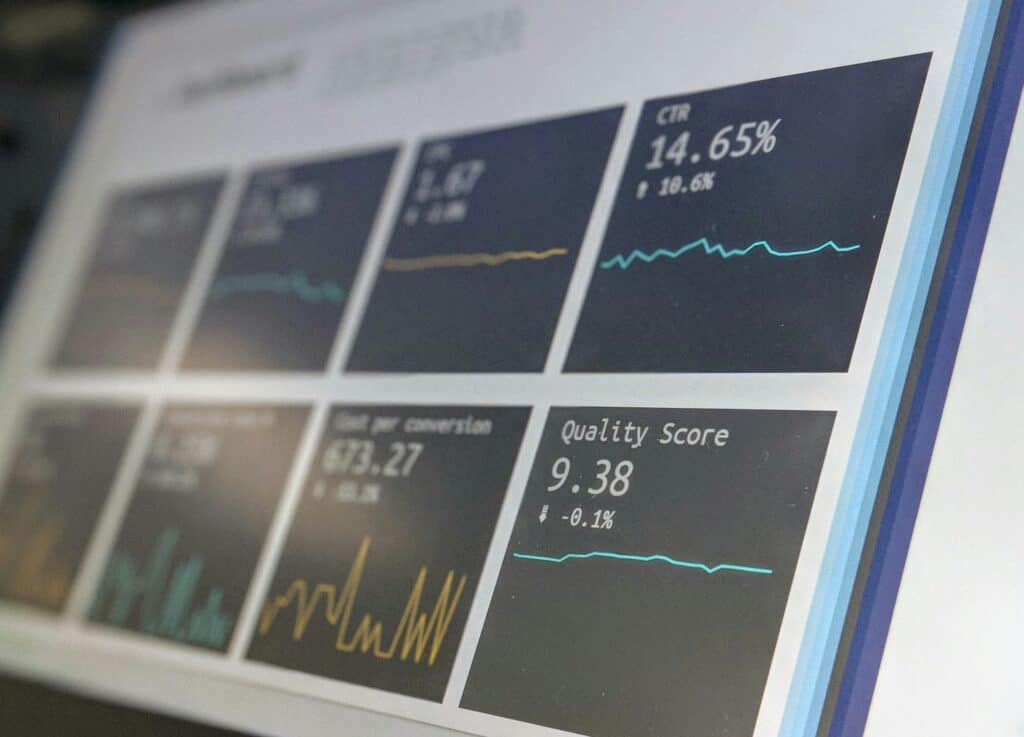The Ultimate Guide to HealthTech Marketing Success

In today’s highly competitive healthcare landscape, effective marketing is crucial for HealthTech companies to thrive and succeed. With the rapid advancement of technology and the increasing demand for innovative healthcare solutions, it is essential for HealthTech marketers to understand the unique challenges and opportunities in this industry. In this ultimate guide, we will explore the landscape of HealthTech marketing, delve into the development of robust marketing strategies, discuss the implementation of marketing plans, navigate the challenges faced by HealthTech marketers, predict future trends in HealthTech marketing, and provide insights on measuring the success of your HealthTech marketing strategy.
Understanding the Landscape of HealthTech Marketing
The importance of HealthTech marketing cannot be overstated in today’s world. As healthcare technology continues to evolve, it is vital for companies in this space to effectively communicate their products and services to potential customers. HealthTech marketing plays a pivotal role in raising awareness, driving adoption, and building trust in the industry. By understanding the landscape of HealthTech marketing, you can position your company for success.
HealthTech marketing goes beyond traditional marketing strategies. It requires a deep understanding of the healthcare industry, as well as the ability to navigate the complex regulatory landscape. It involves creating targeted campaigns that resonate with healthcare professionals, patients, and other stakeholders.
One of the key challenges in HealthTech marketing is building trust. Healthcare is a sensitive and personal matter, and consumers need to feel confident in the technology they are using. Effective marketing strategies can address these concerns by providing clear and transparent information about the benefits and safety of HealthTech solutions.
The Importance of HealthTech Marketing in Today’s World
HealthTech marketing plays a crucial role in connecting innovative healthcare solutions with those who need them the most. With the increasing emphasis on preventive and personalized healthcare, effective marketing can educate consumers about the benefits of HealthTech and empower them to take control of their well-being.
Imagine a world where individuals can monitor their health in real-time, receive personalized recommendations based on their unique needs, and access healthcare services from the comfort of their own homes. HealthTech marketing can help make this vision a reality by creating awareness and driving adoption of these innovative solutions.
Moreover, HealthTech marketing can also contribute to reducing healthcare costs. By promoting preventive measures and early detection, HealthTech solutions can help individuals manage their health proactively, potentially reducing the need for expensive treatments and hospitalizations.
Key Players in the HealthTech Marketing Industry
The HealthTech marketing industry is comprised of various stakeholders, each playing a vital role in shaping the industry’s landscape. From HealthTech startups to established healthcare organizations and marketing agencies specializing in HealthTech, understanding the key players will help you identify potential collaborators and competitors.
HealthTech startups are at the forefront of innovation, developing cutting-edge technologies that have the potential to revolutionize healthcare. These startups often face unique marketing challenges, as they need to establish credibility and gain the trust of potential customers in a highly regulated industry.
On the other hand, established healthcare organizations bring their expertise and resources to the HealthTech marketing landscape. These organizations have established relationships with healthcare professionals and patients, which can be leveraged to drive adoption of HealthTech solutions.
Marketing agencies specializing in HealthTech play a crucial role in helping companies navigate the complex world of healthcare marketing. These agencies have a deep understanding of the industry’s nuances and can develop tailored marketing strategies that resonate with the target audience.
Collaboration between these key players is essential for the growth and success of the HealthTech marketing industry. By working together, startups, healthcare organizations, and marketing agencies can leverage their respective strengths to drive innovation, improve patient outcomes, and shape the future of healthcare.
Developing a Robust HealthTech Marketing Strategy
Developing a robust HealthTech marketing strategy is essential for companies to stand out in the crowded marketplace. By identifying your target audience, setting clear marketing objectives, and selecting the right marketing channels, you can maximize the effectiveness of your marketing efforts.
Identifying Your Target Audience in HealthTech
In the HealthTech industry, identifying your target audience is crucial to tailor your marketing messages and deliver them to the right people. By conducting thorough market research and understanding the specific needs and pain points of your target audience, you can create compelling campaigns that resonate with them.
For example, let’s say you are a HealthTech company that specializes in developing wearable devices for monitoring heart rate and sleep patterns. Your target audience may include fitness enthusiasts, individuals with chronic health conditions, and healthcare professionals. By understanding the unique challenges and desires of each segment, you can create targeted marketing campaigns that address their specific needs.
Furthermore, it is important to consider the demographics of your target audience. Are they predominantly young adults or older individuals? Are they more likely to be tech-savvy or technologically challenged? These factors will influence the marketing channels and messaging that will resonate most effectively with your target audience.
Setting Clear Marketing Objectives
Setting clear marketing objectives is essential for measuring the success of your HealthTech marketing strategy. Whether your goal is to increase brand awareness, drive website traffic, generate leads, or increase conversions, having well-defined objectives will guide your decision-making and help you prioritize your marketing activities.
For instance, if your objective is to increase brand awareness, you may focus on creating engaging content that educates your target audience about the benefits of HealthTech and positions your company as a thought leader in the industry. On the other hand, if your objective is to generate leads, you may invest more resources in paid advertising campaigns and lead generation strategies.
It is also important to set specific and measurable goals for each objective. For example, instead of aiming to increase website traffic, you may set a goal to increase website traffic by 20% within the next quarter. This will provide a clear benchmark for evaluating the success of your marketing efforts.
Choosing the Right Marketing Channels for HealthTech
The HealthTech industry offers a plethora of marketing channels to reach your target audience. From traditional print and television advertisements to digital platforms and social media, selecting the right channels requires careful consideration of your target audience’s preferences and habits.
When choosing the right marketing channels, it is important to consider the nature of your product or service. For example, if your HealthTech solution is primarily targeted towards healthcare professionals, you may consider attending industry conferences and trade shows to showcase your product and establish connections with potential customers.
On the other hand, if your target audience consists of tech-savvy individuals, digital marketing channels such as social media platforms, email marketing, and search engine optimization may be more effective in reaching and engaging with them.
Additionally, it is crucial to monitor the performance of each marketing channel and make data-driven decisions. By analyzing metrics such as click-through rates, conversion rates, and cost per acquisition, you can identify which channels are delivering the best results and allocate your marketing budget accordingly.
In conclusion, developing a robust HealthTech marketing strategy requires a deep understanding of your target audience, clear marketing objectives, and careful selection of the right marketing channels. By investing time and resources into these areas, you can position your HealthTech company for success in the competitive marketplace.
Implementing Your HealthTech Marketing Plan
Implementing your HealthTech marketing plan involves crafting compelling marketing messages, leveraging digital platforms, and continuously monitoring and adjusting your marketing efforts to maximize their impact.
When it comes to implementing your HealthTech marketing plan, there are several key factors to consider. Crafting compelling marketing messages is crucial in capturing the attention of your target audience. In the HealthTech industry, where competition is fierce, it is essential to develop unique value propositions for your products or services. By highlighting the benefits they offer, you can create a strong emotional connection with your potential customers.
One effective way to craft compelling marketing messages is by understanding the pain points of your target audience. By addressing their specific needs and challenges, you can position your HealthTech solutions as the answer they have been searching for. Whether it is improving patient outcomes, streamlining healthcare processes, or enhancing the overall patient experience, your marketing messages should clearly communicate the value your products or services bring to the table.
Leveraging Digital Platforms for HealthTech Marketing
In today’s digital age, leveraging various digital platforms is essential for successful HealthTech marketing. With the increasing reliance on technology in the healthcare industry, it is crucial to establish a strong online presence and engage with your target audience through digital channels.
Social media platforms play a significant role in HealthTech marketing. They provide a platform for you to connect with healthcare professionals, patients, and other stakeholders in the industry. By sharing valuable content, industry insights, and success stories, you can build credibility and trust with your audience.
Content marketing strategies are also effective in HealthTech marketing. By creating informative and educational content, such as blog posts, whitepapers, and case studies, you can position yourself as a thought leader in the industry. This not only helps in attracting potential customers but also establishes your brand as a trusted source of information.
Search engine optimization (SEO) is another crucial aspect of digital marketing for HealthTech companies. By optimizing your website and content for relevant keywords and phrases, you can improve your organic search rankings and drive more targeted traffic to your site. This, in turn, increases the visibility of your HealthTech solutions and enhances your chances of generating qualified leads.
Monitoring and Adjusting Your Marketing Efforts
Implementing a HealthTech marketing plan is an ongoing process that requires continuous monitoring and adjustment. It is essential to regularly review the performance of your marketing efforts to identify areas of improvement and make necessary adjustments.
Key performance indicators (KPIs) play a vital role in monitoring the success of your marketing strategies. By tracking metrics such as website traffic, conversion rates, and customer engagement, you can gain valuable insights into the effectiveness of your campaigns. This data allows you to identify what is working well and what needs improvement.
Feedback from customers and healthcare professionals is another valuable source of information. By actively seeking feedback through surveys, interviews, and social media interactions, you can gain a deeper understanding of your target audience’s needs and preferences. This feedback can help you refine your marketing messages and tailor your strategies to better resonate with your audience.
Staying updated with industry trends is also crucial in adjusting your marketing efforts. The HealthTech industry is constantly evolving, with new technologies, regulations, and market dynamics shaping the landscape. By staying informed about the latest trends and developments, you can adapt your marketing strategies to stay ahead of the competition and capitalize on emerging opportunities.
In conclusion, implementing your HealthTech marketing plan requires careful consideration of crafting compelling marketing messages, leveraging digital platforms, and monitoring and adjusting your marketing efforts. By focusing on these key areas, you can maximize the impact of your marketing strategies and drive success in the competitive HealthTech industry.
Navigating the Challenges of HealthTech Marketing
HealthTech marketing is a rapidly growing field that offers immense opportunities for businesses. However, along with these opportunities, come a unique set of challenges that marketers must navigate. In this article, we will explore two key challenges faced by HealthTech marketers – regulatory hurdles and privacy concerns – and discuss strategies to overcome them.
Overcoming Regulatory Hurdles in HealthTech Marketing
The HealthTech industry operates in a highly regulated environment, with compliance requirements varying across different geographies. This means that marketers need to have a deep understanding of the regulations that govern their specific market and ensure that their marketing activities align with these requirements.
One of the main challenges in HealthTech marketing is staying up-to-date with the ever-evolving regulatory landscape. New regulations and guidelines are constantly being introduced, and marketers need to be proactive in monitoring these changes to ensure compliance. Failure to comply with regulations can result in severe consequences, such as fines, legal issues, and damage to the reputation of the company.
Another aspect of regulatory hurdles in HealthTech marketing is obtaining the necessary certifications and approvals. Depending on the nature of the product or service being marketed, there may be specific certifications or approvals required before it can be marketed to the public. Marketers need to be diligent in understanding these requirements and working closely with regulatory bodies to ensure a smooth and compliant marketing process.
Furthermore, HealthTech marketers must also navigate the complex web of regulations surrounding advertising and promotion. In many jurisdictions, there are strict rules regarding the claims that can be made about healthcare products and services. Marketers need to strike a delicate balance between promoting their offerings effectively and ensuring that their claims are accurate and compliant with regulations.
Addressing Privacy Concerns in HealthTech Marketing
As HealthTech solutions often involve the collection and processing of sensitive personal data, privacy concerns are a significant challenge for marketers in this industry. Consumers are increasingly concerned about the privacy and security of their personal information, and businesses that fail to address these concerns risk losing the trust and confidence of their target audience.
To address privacy concerns effectively, HealthTech marketers need to prioritize data protection and security. This involves implementing robust data protection measures, such as encryption and access controls, to ensure that personal data is stored and transmitted securely. Marketers should also regularly assess and update their data handling practices to align with industry best practices and regulatory requirements.
Transparency is another crucial aspect of addressing privacy concerns. Marketers should be transparent about the data they collect, how it is used, and who has access to it. This transparency builds trust and credibility with consumers, as they feel more confident that their personal information is being handled responsibly.
Additionally, obtaining explicit consent from individuals before collecting their data is essential. Marketers should clearly explain the purpose of data collection and provide individuals with the option to opt out if they do not wish to share their information. This empowers individuals to make informed decisions about their data and gives them control over their privacy.
Furthermore, HealthTech marketers can differentiate themselves by adopting privacy-enhancing technologies and practices. For example, implementing anonymization techniques or using secure data sharing platforms can help alleviate privacy concerns and demonstrate a commitment to protecting personal information.
In conclusion, HealthTech marketing presents exciting opportunities for businesses, but it also comes with its fair share of challenges. By staying informed about regulations, prioritizing data privacy and security, and being transparent with consumers, marketers can navigate these challenges and build successful HealthTech marketing campaigns.
Predicting Future Trends in HealthTech Marketing
As technology continues to advance at an unprecedented rate, it is important for HealthTech marketers to stay ahead of the curve and anticipate future trends. The role of artificial intelligence and the impact of virtual reality are two areas that are poised to shape the future of HealthTech marketing.
In addition to artificial intelligence and virtual reality, there are several other emerging trends that will have a significant impact on HealthTech marketing. One such trend is the rise of wearable devices. These devices, such as fitness trackers and smartwatches, are becoming increasingly popular among consumers who are looking to monitor their health and fitness levels. For HealthTech marketers, this presents an opportunity to develop targeted marketing campaigns that leverage the data collected by these devices to provide personalized recommendations and insights.
Another trend that is expected to have a major impact on HealthTech marketing is the increasing use of telemedicine. Telemedicine allows patients to receive medical care remotely, through the use of video conferencing and other communication technologies. This not only provides convenience for patients, but also opens up new avenues for HealthTech marketers to reach and engage with their target audience. By developing telemedicine platforms and applications, marketers can connect patients with healthcare providers and offer personalized health advice and recommendations.
The Role of Artificial Intelligence in HealthTech Marketing
Artificial intelligence has the potential to revolutionize HealthTech marketing by enabling personalized and data-driven campaigns. From chatbots and virtual assistants to predictive analytics, AI-powered solutions can help marketers deliver targeted messages and improve customer experiences.
One way in which artificial intelligence can enhance HealthTech marketing is through the use of chatbots. These virtual assistants can interact with users in a conversational manner, providing them with information and assistance in real-time. For example, a chatbot could help a user find a nearby healthcare provider, schedule an appointment, or answer questions about a specific medical condition. By leveraging AI technology, HealthTech marketers can provide a seamless and personalized user experience, improving customer satisfaction and engagement.
Predictive analytics is another area where artificial intelligence can make a significant impact on HealthTech marketing. By analyzing large amounts of data, AI algorithms can identify patterns and trends that can help marketers better understand their target audience and tailor their marketing strategies accordingly. For example, AI-powered analytics can identify individuals who are at a higher risk for certain health conditions and enable marketers to deliver targeted messages and recommendations to these individuals. This not only improves the effectiveness of marketing campaigns but also helps to improve overall public health by promoting preventive care and early intervention.
The Impact of Virtual Reality on HealthTech Marketing
Virtual reality has the ability to immerse users in simulated environments, offering unique opportunities for HealthTech marketers. From virtual patient experiences to interactive educational content, virtual reality can engage and educate consumers in new and exciting ways.
One area where virtual reality can have a significant impact on HealthTech marketing is in medical training and education. By creating realistic and immersive simulations, virtual reality can provide healthcare professionals with hands-on training experiences that are safe and cost-effective. For example, surgeons can practice complex procedures in a virtual environment before performing them on real patients, reducing the risk of errors and improving patient outcomes. HealthTech marketers can leverage this technology by developing virtual reality training programs and educational content that can be accessed by healthcare professionals around the world.
Virtual reality can also be used to enhance patient experiences and improve health outcomes. For example, virtual reality can be used to create virtual patient experiences, allowing individuals to see and understand their own health conditions in a visual and interactive way. This can help patients better understand their treatment options and make more informed decisions about their healthcare. HealthTech marketers can develop virtual reality applications and content that provide patients with personalized health information and support, improving patient engagement and satisfaction.
Measuring the Success of Your HealthTech Marketing Strategy
Measuring the success of your HealthTech marketing strategy is essential to evaluate its effectiveness and make data-driven decisions. By defining key performance indicators and utilizing analytics tools, you can gain valuable insights into the impact of your marketing efforts.
Key Performance Indicators for HealthTech Marketing
Key performance indicators (KPIs) provide measurable benchmarks for evaluating the success of your HealthTech marketing strategy. Whether it is website traffic, conversion rates, customer acquisition cost, or customer lifetime value, tracking relevant KPIs will help you gauge the performance of your campaigns.
Using Analytics to Refine Your HealthTech Marketing Strategy
Analytics tools provide actionable insights into the performance of your marketing campaigns, helping you refine your strategy for optimal results. By analyzing data on user behavior, traffic sources, and conversion rates, you can identify areas of improvement and make data-driven decisions to optimize your marketing efforts.
Conclusion
In conclusion, HealthTech marketing plays a vital role in driving awareness, adoption, and trust in the rapidly evolving healthcare industry. By understanding the landscape of HealthTech marketing, developing robust marketing strategies, implementing effective marketing plans, overcoming challenges, predicting future trends, and measuring success, you can position your HealthTech company for long-term success and make a positive impact on healthcare outcomes.
Reach Your Revenue Goals. Grow MRR with Gripped.
Discover how Gripped can help drive more trial sign-ups, secure quality demos with decision makers and maximise your marketing budget.
Here's what you'll get:
- Helpful advice and guidance
- No sales pitches or nonsense
- No obligations or commitments



Book your free digital marketing review
Other Articles you maybe interested in
The UK’s 50 Best Marketing Agencies: Expert Picks Across SEO, PPC & ABM (Updated for 2025)
Introduction Finding the right digital marketing agency can feel like a game of chance, especially when you’re drowning in options. The UK is packed with agencies claiming they’ve cracked the code for SEO, mastered PPC, or nailed account-based marketing (ABM). But let’s face it: not all agencies deliver what they promise. There are more than…
Marketing as a Service vs. Marketing Agencies: A Practical Guide for B2B SaaS Leaders
As someone who’s been on both sides of the fence—first as an in-house CMO and now as an agency co-founder—I’ve seen firsthand how businesses struggle to find the right approach to their marketing. B2B SaaS and tech companies face unique challenges: complex buyer journeys, the need for continuous influx of sales conversations, and a rapidly…
Why Short Term ROI Obsession is Sabotaging Your B2B Growth (And How to Fix It)
When you focus only on short term returns, you overlook the bigger and more complex picture – how sustainable value is created over time in B2B marketing.


